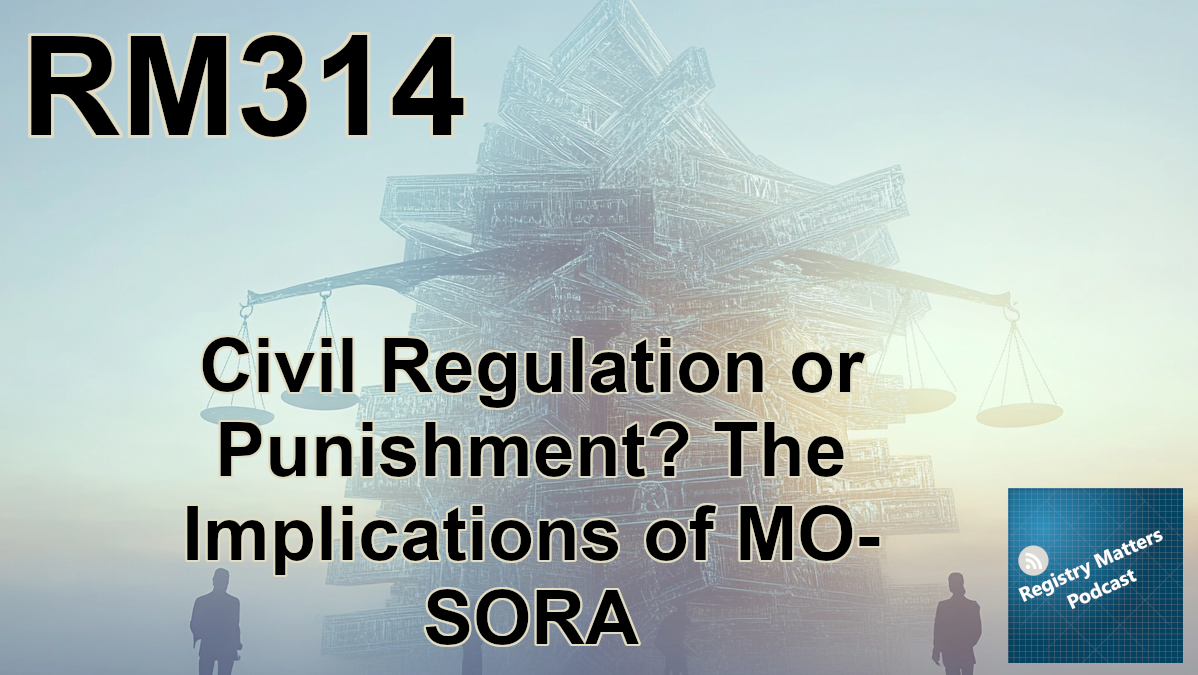In this episode, we dive into a challenging Missouri Supreme Court decision affecting the PFR community, revisit last week’s discussion on banishment, and update you on a key case in Alabama argued before the Eleventh Circuit. Chance returns with news from California on progress in parole and treatment, and we also discuss a recent press release from the National Association of Criminal Defense Lawyers regarding Marsy’s Law.
[3:11] The discussion revolves around the originalist interpretation of “banishment,” emphasizing that current residency restrictions in North Carolina do not equate to banishment as understood in colonial times, where individuals were completely exiled. Instead, offenders today retain access to significant portions of cities, aligning with conservative judicial philosophy. [12:39] A new report from the National Association of Criminal Defense Lawyers (NACDL) criticizes Marsy’s Law for undermining due process and the rights of the accused. The discussion delves into how the law’s expansion of victims’ rights can hinder the defense’s ability to investigate, create constitutional issues, and potentially lead to wrongful convictions, highlighting the tension between victims’ advocacy and the preservation of fair trial standards. [27:02] The Eleventh Circuit Court of Appeals is reviewing an Alabama law that imposes a lifetime ban on certain offenders living with their children without due process. Judges on the panel expressed concerns about the law’s lack of flexibility and questioned whether it truly protects children, highlighting the absence of an “exit door” and inconsistencies in its application. The case, Henry vs. Abernathy, challenges the constitutionality of this statute, with the defense arguing that the law fails to pass strict scrutiny and should be invalidated. [38:50] The Missouri Supreme Court upheld the state’s sex offender registry requirements, ruling that they do not violate substantive due process or the prohibition on ex post facto laws. The court determined that the registry serves a legitimate public safety purpose and does not impose punitive measures, affirming that the law is civil in nature despite its retrospective application. [50:47] A lawsuit by the Alliance for Constitutional Sex Offender Laws (ACSOL) challenges the California Department of Corrections and Rehabilitation’s (CDCR) unwritten policy requiring parolees to remain in treatment for the entire parole duration. The lawsuit resulted in new regulations, expected by September 2024, allowing parolees to challenge unnecessary treatment extensions and potentially secure earlier parole discharges.https://www.registrymatters.co/podcast/rm314-civil-regulation-or-punishment-the-implications-of-mo-sora
Leave voicemail: 747-227-4477
Email us: registrymatterscast@gmail.com
Support us on Patreon: https://www.patreon.com/registrymatters
Join the Discord server: https://discord.gg/6FnxwAQm57
Want to support Registry Matters with some swag: https://shop.spreadshirt.com/registry-matters
Apple Podcasts: https://itunes.apple.com/us/podcast/registry-matters/id1305039280
Google Play Music: https://play.google.com/music/listen?u=0#/ps/Icuxbpzvyti7wtoredipbtiojqy
RSS: https://www.registrymatters.co/feed/podcast/
Spotify: https://open.spotify.com/show/3d75P7Kc37n2l79m89F9KI
YouTube: https://www.youtube.com/registrymatters
The Registry Matters Podcast’s mission is to cover issues surrounding the Registry. We cover cases that will peel back the veneer of what we need to do to change our lives for the better. We cover news articles that spark conversations about the total insanity of this modern day witch hunt. This podcast will call out bad policy and call out those that are making bad policy.
To change things for the positive, we need to act. We are 6-7-8-900k strong. With that many people, plus their friends and family, over a million people are affected by the registry. We should be able to secure donations to hire lawyers and lobbyists to move the agenda in our favor. We need our people to be represented.


Leave a Comment